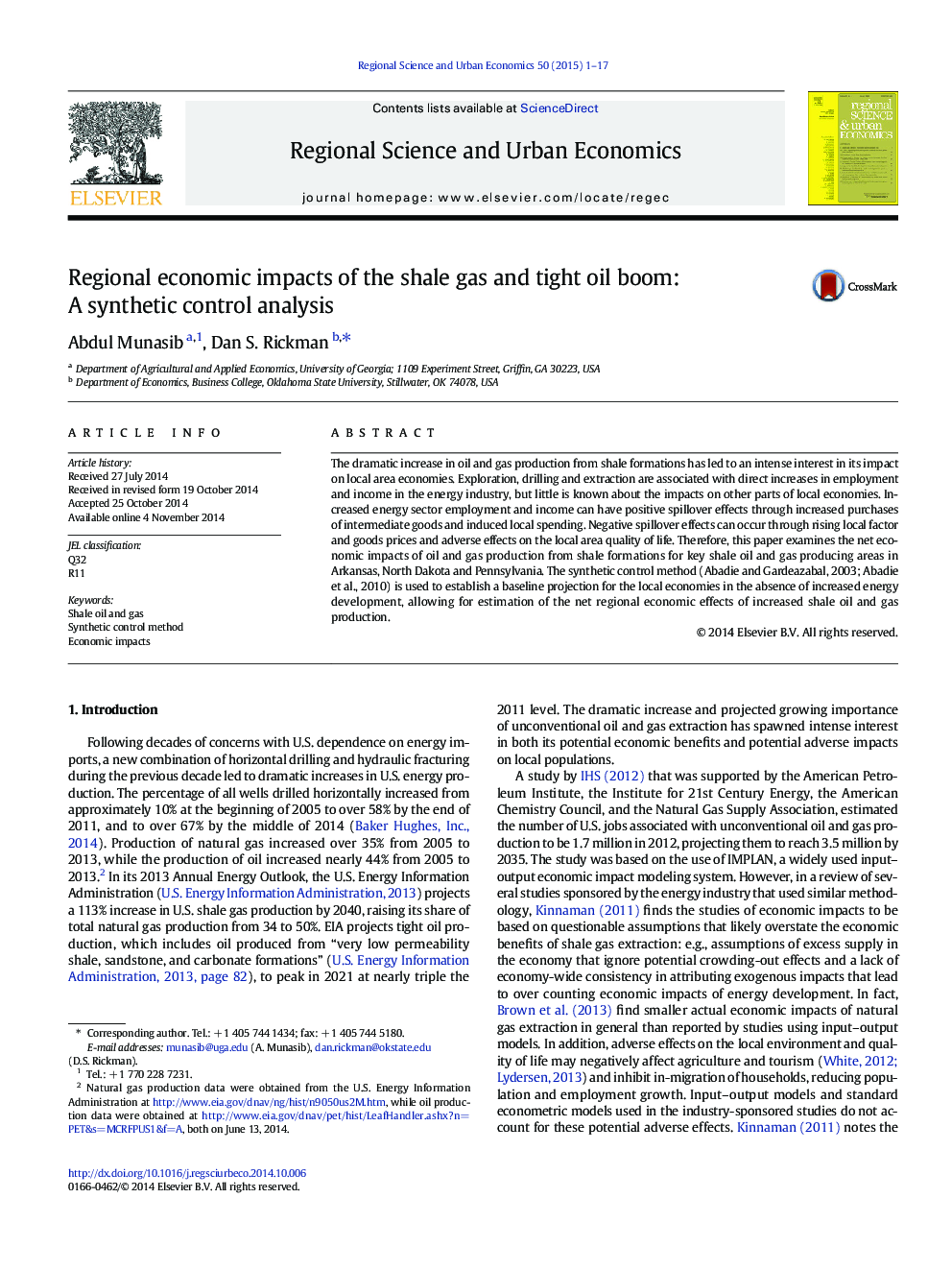| Article ID | Journal | Published Year | Pages | File Type |
|---|---|---|---|---|
| 983694 | Regional Science and Urban Economics | 2015 | 17 Pages |
•Economic impacts of shale oil and gas activities are estimated for shale plays in Arkansas, North Dakota and Pennsylvania.•The Synthetic Control Method is used to estimate the economic impacts in each state.•Estimated impacts are much smaller than those predicted by regional input–output models.•Policy makers should consider both the potential positive and negative effects so as to maximize the social welfare of area residents.
The dramatic increase in oil and gas production from shale formations has led to an intense interest in its impact on local area economies. Exploration, drilling and extraction are associated with direct increases in employment and income in the energy industry, but little is known about the impacts on other parts of local economies. Increased energy sector employment and income can have positive spillover effects through increased purchases of intermediate goods and induced local spending. Negative spillover effects can occur through rising local factor and goods prices and adverse effects on the local area quality of life. Therefore, this paper examines the net economic impacts of oil and gas production from shale formations for key shale oil and gas producing areas in Arkansas, North Dakota and Pennsylvania. The synthetic control method (Abadie and Gardeazabal, 2003; Abadie et al., 2010) is used to establish a baseline projection for the local economies in the absence of increased energy development, allowing for estimation of the net regional economic effects of increased shale oil and gas production.
